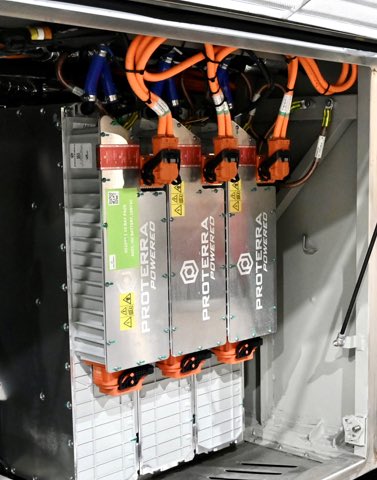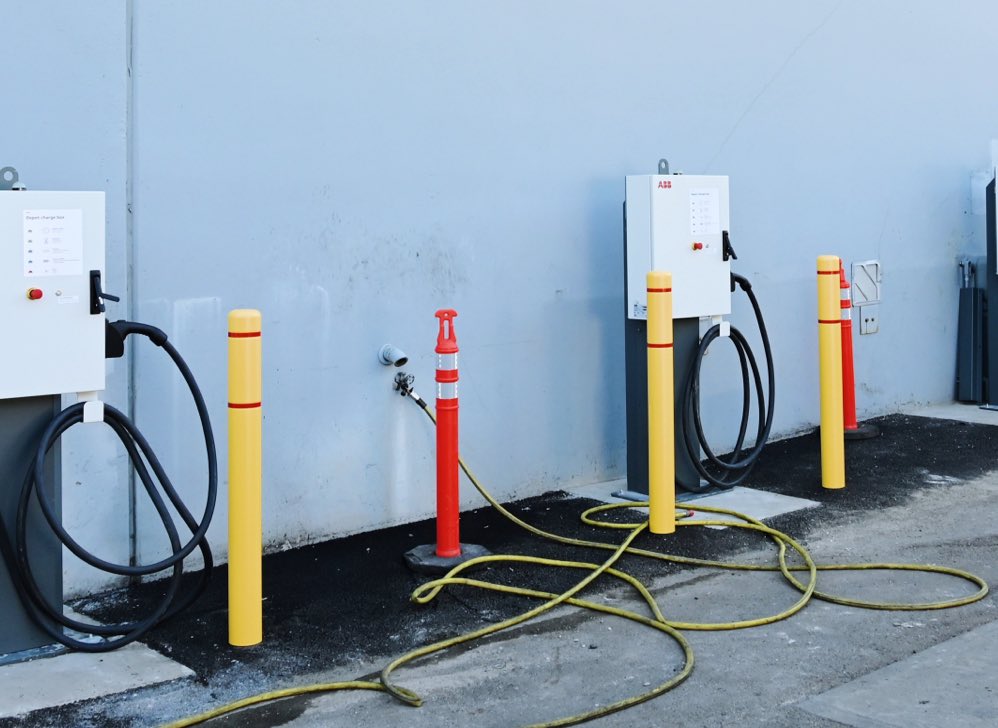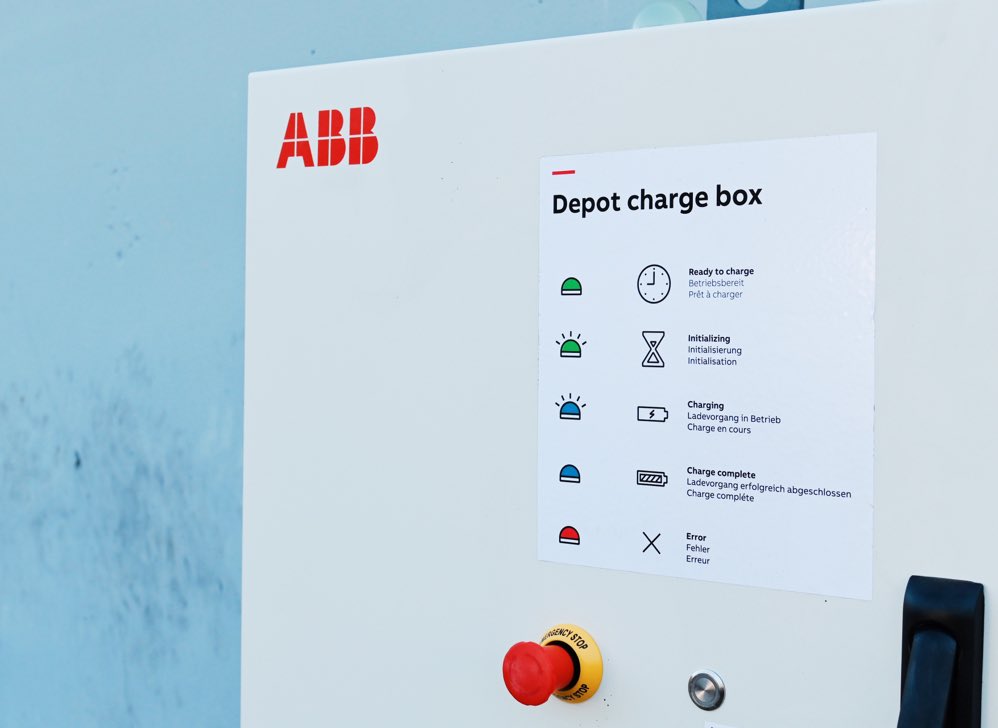Transportation makes up a whopping 45% of Washington State’s greenhouse gas emissions, according to the Department of Ecology. To combat this ever-growing environmental strain, MTRWestern is committed to delivering carbon-free group and intercity regional transportation throughout the Pacific Northwest. While our goal is audacious, our pursuit is intentional. This is an incredible moment not just for our state, but for the nation as a whole and the future of travel.
WHY WE NEED ELECTRIC BUSES NOW

The MTRWestern EVolution
In 2021, we made our last entirely internal combustion motorcoach fleet purchase. Moving forward, every time we buy a group of coaches, a portion of the purchase will be electric vehicles (EVs). MTRWestern is one of the leading charter bus services in the PNW and as such have always strived to provide the best and latest technology to our clients.
In addition to offering a greater variety of transportation solutions for commercial and private use, we also hope to lead by example for others in the transportation industry. Simply put – we need more environmentally friendly transportation options in the PNW, and MTRWestern wants to lead the charge into a greener future.
Our Vision
At MTRWestern, our long-term goal is to change what it means to travel in Washington State by offering top-of-the-line, environmentally friendly transit options.
Additionally, our hope is that other transportation companies follow suit, making electric buses for commercial and private use more readily available. By doing so, we can be a part of making the earth a happier, healthier place for all.

Our Current EVolution
In August 2023, MTRWestern launched the first fully electric intercity bus route in the U.S. between Seattle, WA and Bellingham, WA in partnership with Amtrak and the Washington Department of Transportation. The nearly 200-mile roundtrip journey is completed on a single charge and will save approximately 10,000 gallons of diesel fuel per year, cutting CO2 emissons by 109 tons or 218,000 pounds annually.
MTRWestern’s Seattle facility has three Level 3 DC Fast Charging (DCFC) stations installed. The 150kW fast charge stations mean we can top-off an electric bus from 10% to 80% charge in just 3.5 hours, versus an entire day on our standard Level 2 charger. With our 250 miles of range, that’s about 1 mile for every minute of charge time on our Van Hool CX45E bus.


LATEST NEWS
Keep tabs on MTRWestern’s latest EVolution news and progression towards electrifying our fleet.
- ELECTRIC MOTORCOACHES, GROWING LINE RUN SERVICE HELPING MTRWESTERN ATTRACT ADDITIONAL CUSTOMERS – BUSLINE MAGAZINE
- AMTRAK ROLLS OUT FIRST ELECTRIC BUS
(MTRWESTERN OPERATED) - PERSPECTIVE: MTRWESTERN PRESIDENT JEREMY BUTZLAFF ON THE COMPANY’S EV FUTURE
- Leading the Charge: Our Clean Cities Celebrates MTRWestern’s Electric Bus Milestone

THE INFRASTRUCTURE CHALLENGES OF GOING ELECTRIC
Creating sustainable transportation in the PNW is something we’re driven to accomplish and actively working towards, but there are challenges along the road to greener travel that must be solved to make eco-friendly transit commonplace in Washington State. Addressing these challenges requires collaboration among various stakeholders, including bus operators, utilities, governments, and charging infrastructure providers, to ensure the successful integration of electric buses into the transportation system.
Charging Infrastructure Availability
Establishing an extensive and reliable network of charging stations is crucial for electric bus operations. However, the infrastructure may be limited or insufficient, especially in areas with a higher demand for charging.
High Initial Investment
Building charging infrastructure, including charging stations, power distribution equipment, and grid upgrades, can require significant upfront investment. This cost can pose a challenge for bus operators, especially for smaller companies or municipalities with limited budgets.
Charging Speed & Time
Charging an electric bus takes longer than refueling a conventional bus with diesel or natural gas. Fast-charging technologies are being developed, but even those solutions require more time compared to refueling. The charging time and speed can affect the overall efficiency of the bus operations and scheduling.
Grid Capacity & Power Demand
Charging multiple electric buses simultaneously can put a strain on the electrical grid, especially if the infrastructure is not adequately designed to handle the increased power demand. Coordinating with utilities to ensure the grid’s capacity matches the charging needs is crucial.
Charging Standards & Interoperability
Different charging standards and connector types can create compatibility issues. Bus operators may face challenges when integrating charging equipment from different manufacturers or when accessing charging infrastructure provided by different entities.
Space Constraints
Installing charging infrastructure, such as charging stations or overhead charging systems, requires physical space. Identifying suitable locations for charging infrastructure, especially in dense urban areas, can be challenging due to limited available space and competing land-use requirements.
Maintenance & Service
Charging infrastructure requires regular maintenance and service to ensure optimal performance. Managing the maintenance and service needs of charging stations and associated equipment can be demanding, especially when operating a large fleet of electric buses.
Planning For Future Expansion
Electric bus fleets are expected to grow in the coming years, requiring scalable and future-proof charging infrastructure. Planning for future expansion, including sufficient capacity and scalability, is essential to accommodate the increasing demand for electric buses.